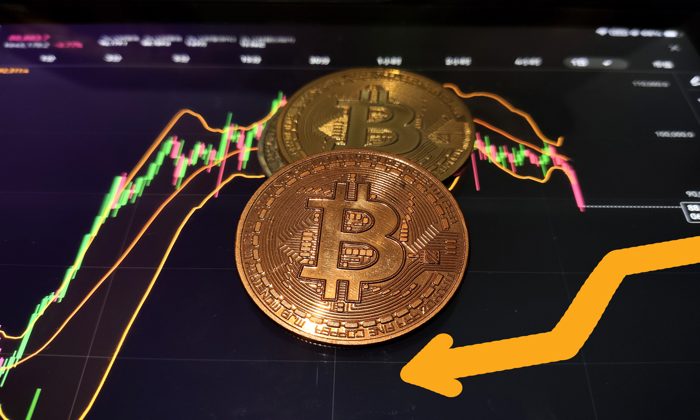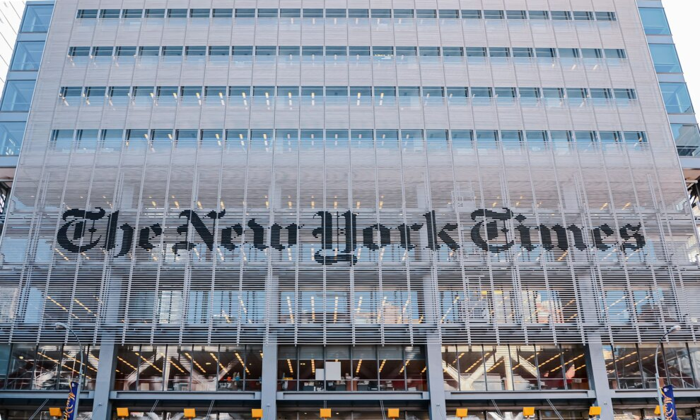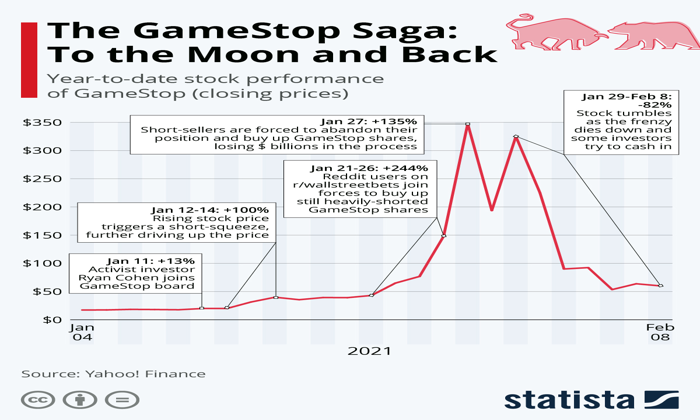The recent developments surrounding the South Dakota Bitcoin bill have sparked significant interest among cryptocurrency advocates and investors alike. On Monday, South Dakota lawmakers voted to defer HB1202, a pivotal piece of Bitcoin investment legislation that aimed to allow the state to allocate a portion of its public funds into Bitcoin. With a vote of 9-3, the House Commerce and Energy Committee effectively halted the proposal, which had proposed a 10% investment in Bitcoin as a strategy to diversify the state’s financial portfolio. Supporters of the bill, including State Representative Logan Manhart, argue that such measures are necessary to adapt to changing economic landscapes, especially in inflationary times. However, concerns voiced by State Investment Officer Matt Clark regarding Bitcoin’s volatility and lack of intrinsic value have fueled ongoing debates over cryptocurrency laws in South Dakota and beyond.
The recent legislative actions concerning the proposed Bitcoin investment framework in South Dakota have raised questions about the future of cryptocurrency adoption at the state level. The bill, known as HB1202, sought to enable the state to invest a fraction of its public funds in Bitcoin, a move that would align South Dakota’s financial strategies with the growing trend of digital asset investment. Despite the bill’s potential to diversify state assets, lawmakers expressed reservations, reflecting a broader hesitance across various states to embrace cryptocurrency laws. As debates continue over the viability of Bitcoin as a secure investment, South Dakota’s decision mirrors similar trends seen in other regions, where the discussion around Bitcoin reserve bills remains contentious. The landscape of cryptocurrency legislation is evolving, but the path forward appears fraught with skepticism and caution.
South Dakota Bitcoin Bill Rejected: Implications for Cryptocurrency Legislation
The recent decision by South Dakota lawmakers to defer the HB1202 Bitcoin proposal highlights the ongoing struggle for Bitcoin advocates in the state. The House Commerce and Energy Committee’s vote to sideline the bill not only signifies a setback for cryptocurrency investment legislation but also raises questions about the future of such initiatives in South Dakota. As the state aims to modernize its investment strategy, the rejection of this bill reflects the cautious approach lawmakers are taking towards Bitcoin and other cryptocurrencies, which are often viewed as volatile and risky assets.
This legislative outcome mirrors a broader trend observed across the United States, where various states are grappling with how to regulate and incorporate cryptocurrency into their financial frameworks. The rejection of the Bitcoin reserve bill in South Dakota, similar to recent decisions in Montana, showcases the hesitancy among lawmakers to embrace digital currencies fully. As public interest in Bitcoin investment continues to grow, the challenge remains for South Dakota and other states to navigate the complexities of cryptocurrency laws while ensuring that they protect investors and public funds.
The Future of Cryptocurrency Laws in South Dakota
The defeat of the HB1202 Bitcoin proposal may not be the end of cryptocurrency discussions in South Dakota. Lawmakers like Representative Logan Manhart are determined to revisit the proposal, emphasizing Bitcoin’s potential as a hedge against inflation and a diversification tool for state investments. This sentiment is echoed by proponents nationwide who argue that integrating cryptocurrencies into public investment strategies could yield significant returns, particularly as traditional markets face uncertainty.
However, the concerns raised by state officials like Matt Clark about the volatility and lack of intrinsic value in Bitcoin cannot be overlooked. As South Dakota lawmakers consider future legislation, they will need to balance the innovative potential of cryptocurrencies with the economic realities and risks involved. The ongoing dialogue around cryptocurrency laws in South Dakota will be crucial as the state seeks to align its investment practices with the evolving financial landscape.
Examining the HB1202 Bitcoin Proposal and Its Impact on State Investments
The HB1202 Bitcoin proposal aimed to enable South Dakota to allocate up to 10% of its public funds into Bitcoin investments, a move that would have marked a significant shift in the state’s investment policies. Proponents of the bill argued that such a strategy could enhance the state’s financial portfolio, especially in an era marked by economic inflation. The proposal was seen as a forward-thinking approach to adapt to new financial realities, yet it faced stiff opposition from lawmakers wary of Bitcoin’s unpredictable nature.
As discussions around the HB1202 Bitcoin proposal unfolded, it became evident that the future of cryptocurrency investments in South Dakota hinges on educating lawmakers about the benefits and risks associated with digital assets. While the bill has been deferred, the conversations surrounding it may pave the way for more informed decision-making in the future. As other states continue to explore cryptocurrency legislation, South Dakota’s experience could serve as a valuable case study for lawmakers contemplating similar measures.
Comparative Analysis: South Dakota and Other States on Bitcoin Legislation
South Dakota’s recent legislative setbacks regarding Bitcoin investment are not isolated incidents; similar outcomes have been witnessed in states like Montana and North Dakota. As South Dakota lawmakers vote against the HB1202 Bitcoin proposal, it highlights a growing trend among state legislatures to approach cryptocurrency with caution. In contrast, states like Wyoming and Texas are taking proactive steps, proposing more favorable laws for Bitcoin reserves and investments.
This dichotomy in state approaches to cryptocurrency legislation raises intriguing questions about the future landscape of digital currency regulation in the U.S. While some lawmakers express skepticism over Bitcoin’s viability, others recognize its potential to diversify state investment portfolios. As debates continue, it will be essential for South Dakota to observe the outcomes of Bitcoin initiatives in more progressive states, potentially informing a more balanced legislative approach in the future.
Bitcoin Market Reactions: The Impact of Legislative Decisions
The recent legislative decisions in South Dakota and other states have coincided with observable fluctuations in the Bitcoin market. Following the announcement of the HB1202 Bitcoin proposal’s deferral, Bitcoin experienced a notable decline, dropping by 3.9% to $91,980. This downturn reflects a broader risk-off sentiment among investors, compounded by concerns surrounding new trade issues and declining technology stocks.
Market reactions to legislative developments can significantly influence investor sentiment. As Bitcoin’s price fluctuates, the decisions made by lawmakers in states like South Dakota will continue to play a crucial role in shaping the cryptocurrency landscape. Investors are keenly watching the actions of state legislatures, as these decisions could either bolster or undermine confidence in Bitcoin as a viable investment asset.
The Role of State Investment Officers in Cryptocurrency Legislation
State investment officers, like Matt Clark in South Dakota, play a pivotal role in the discourse surrounding cryptocurrency legislation. Their insights and evaluations of assets like Bitcoin are crucial in informing lawmakers about the potential risks and benefits associated with such investments. Clark’s concerns regarding Bitcoin’s volatility and lack of intrinsic value reflect a broader apprehension among financial regulators about the integration of digital currencies into public investment strategies.
As more states consider similar bitcoin reserve proposals, the input from state investment officers will be instrumental in shaping legislative outcomes. Their expertise can help bridge the gap between innovative investment strategies and the need for fiscal responsibility. By fostering a collaborative environment between lawmakers and investment professionals, states can develop more robust frameworks for cryptocurrency that align with both public interests and market realities.
Public Sentiment and Bitcoin: A Look at State-Level Initiatives
Public sentiment regarding Bitcoin and cryptocurrency investments is a driving force behind legislative initiatives at the state level. In South Dakota, the push for the HB1202 Bitcoin proposal was fueled by advocates who believe in the asset’s potential as a hedge against inflation. However, public opinion is often divided, with many expressing concerns about the risks associated with investing in volatile cryptocurrencies.
As states across the nation grapple with similar sentiments, the challenge lies in balancing innovation with investor protection. Engaging with constituents and understanding their perspectives on Bitcoin and other cryptocurrencies will be essential for lawmakers as they craft future legislation. The ongoing dialogue between advocates, critics, and the public will play a crucial role in shaping the future of cryptocurrency laws in South Dakota and beyond.
Future Prospects for Bitcoin Reserve Proposals in the U.S.
Despite the setback in South Dakota, the future prospects for Bitcoin reserve proposals across the United States remain promising. With approximately 18 state-level Bitcoin reserve proposals still pending, there is a clear indication that lawmakers are not entirely dismissing the potential of cryptocurrencies. States like Florida, Arizona, and Texas are actively pushing forward with their own initiatives, reflecting a growing acceptance of Bitcoin in the financial landscape.
As the conversation around cryptocurrencies evolves, South Dakota may find itself at a crossroads, needing to adapt to the changing attitudes toward Bitcoin investment. The determination of advocates like Representative Logan Manhart to revisit the legislation signals that interest in Bitcoin is not waning. As other states forge ahead with more favorable laws, South Dakota may be compelled to reconsider its stance on cryptocurrency to remain competitive and relevant in the financial sector.
The Intersection of Technology and Finance: Bitcoin’s Role
The ongoing discussions surrounding Bitcoin and cryptocurrency legislation underscore the intersection of technology and finance in today’s economy. As digital currencies become more prevalent, state lawmakers must grapple with how to integrate these innovative assets into existing financial frameworks. The HB1202 Bitcoin proposal aimed to encourage South Dakota to embrace this technological shift, yet legislative hesitations reveal the complexities involved.
As technology continues to evolve, so too must the strategies employed by state investment portfolios. Bitcoin, with its decentralized nature and fixed supply, presents unique opportunities for diversification. However, lawmakers must weigh these potential advantages against the regulatory challenges and market volatility that accompany cryptocurrencies. The future of finance is undoubtedly linked to technological advancements, and Bitcoin’s role in that future remains a critical topic for legislators and investors alike.
Frequently Asked Questions
What was the outcome of the South Dakota Bitcoin bill HB1202?
The South Dakota Bitcoin bill, HB1202, was effectively killed when the House Commerce and Energy Committee voted 9-3 to defer the bill until the 41st day of the session, which means it will not move forward as the session concludes in less than 40 days.
What did the South Dakota Bitcoin bill propose regarding state investments?
The South Dakota Bitcoin bill proposed allowing the state to invest up to 10% of its public funds into Bitcoin investments. This was intended as a strategy to diversify the state’s financial portfolio by allocating a limited amount of funds into alternative assets like Bitcoin.
Who introduced the South Dakota Bitcoin bill and what was their rationale?
The South Dakota Bitcoin bill was introduced by State Representative Logan Manhart (R-S.D.). He argued that it was a commonsense update to the state’s investment strategy, suggesting that Bitcoin has shown to preserve value, especially in inflationary environments.
What concerns did South Dakota lawmakers express about the Bitcoin investment legislation?
Concerns about the South Dakota Bitcoin investment legislation included Bitcoin’s volatility and lack of intrinsic value. State Investment Officer Matt Clark noted that Bitcoin does not generate income and lacks underlying physical use, making it premature to amend current investment laws.
Are there other states considering Bitcoin reserve bills similar to South Dakota’s proposal?
Yes, while South Dakota lawmakers have stalled their Bitcoin reserve proposal, several other states, including Florida, Arizona, Utah, and Texas, are advancing their own Bitcoin reserve bills, with around 18 state-level proposals still pending.
What is the current sentiment towards Bitcoin investments among South Dakota lawmakers?
The current sentiment among South Dakota lawmakers appears cautious, with concerns raised about Bitcoin’s volatility and market uncertainties. However, Representative Logan Manhart remains determined to renew efforts for Bitcoin investment legislation in the future.
What recent events affected Bitcoin prices amid the discussion of the South Dakota Bitcoin bill?
Recent events, including trade concerns and a significant decline in technology stocks, contributed to a risk-off sentiment in global markets, leading to a 3.9% decrease in Bitcoin prices on the same day that South Dakota lawmakers voted on the Bitcoin bill.
| Key Point | Details |
|---|---|
| Bill Deferral | The House Commerce and Energy Committee voted 9-3 to defer HB1202, effectively killing the bill. |
| Proposal Overview | Introduced by State Representative Logan Manhart, the bill aimed to allow up to 10% of state public funds to be invested in Bitcoin. |
| Concerns Raised | State Investment Officer Matt Clark highlighted Bitcoin’s volatility and lack of intrinsic value as major concerns. |
| Future Prospects | Despite the setback, Manhart intends to renew efforts for the bill next year. |
| National Trends | While South Dakota and Montana stalled, states like Florida and Texas are advancing their own Bitcoin reserve proposals. |
| Market Impact | Bitcoin faced a decline of 3.9% amid trade concerns and a drop in technology stocks. |
Summary
The South Dakota Bitcoin bill faced significant challenges this week, as lawmakers voted to defer the proposed legislation that would have allowed the state to invest in Bitcoin. Despite the setback, advocates like State Representative Logan Manhart remain committed to pushing for Bitcoin investment opportunities in the future. While South Dakota’s decision mirrors similar actions in other states, the interest in Bitcoin as an investment option continues to grow in various regions, indicating that the conversation around cryptocurrency is far from over.
The South Dakota Bitcoin bill has faced a significant setback as state lawmakers voted against a proposal that aimed to allow the state to invest in Bitcoin. This legislative decision, formally known as HB1202 Bitcoin proposal, was intended to diversify South Dakota’s financial portfolio by permitting a 10% allocation of public funds towards Bitcoin investments. Advocates argued that such Bitcoin investment legislation was a necessary update to the state’s financial strategy, especially considering the asset’s potential to preserve value in inflationary times. However, concerns about Bitcoin’s volatility and lack of intrinsic value led to the bill’s deferral, as South Dakota lawmakers decided to postpone discussions until the session’s conclusion. This move reflects a broader hesitation among cryptocurrency laws in South Dakota, mirroring similar outcomes in other states like Montana, where a Bitcoin reserve bill was also rejected.
The recent developments regarding the South Dakota Bitcoin bill highlight the ongoing debate surrounding cryptocurrency regulations in the state. Lawmakers are grappling with the implications of allowing state funds to engage in Bitcoin investments, a move that some view as a progressive step towards modernizing financial strategies. The failed HB1202 proposal aimed to introduce a modest yet strategic investment in digital currencies, aligning with trends seen across various states. As discussions continue about cryptocurrency laws in South Dakota, the landscape remains dynamic, with advocates and critics alike weighing in on the potential risks and rewards of incorporating Bitcoin into state finances. As other regions explore similar initiatives, South Dakota’s legislative journey reflects a cautious yet evolving approach to the integration of cryptocurrency into public investment portfolios.
















Leave a Reply